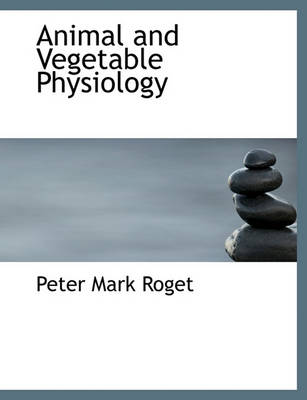Animal and Vegetable Physiology 2 Volume Paperback Set
2 primary works
Volume 1
Under the terms of the will of the Oxford scholar Francis Henry, Earl of Bridgewater (1756-1829), a series of works was commissioned, designed to contribute to an understanding of the world as created by God. In 1834 Peter Roget, who was at the time compiling his celebrated Thesaurus, contributed two volumes to that controversial series, of which this is the first. He described in a manner designed to appeal to a wide audience the variety and complexity of the mechanical processes of the plant and animal kingdoms. Particular attention is given to those areas where animal life reveals something about human life and the man-made world, emphasising the magnificence of the all-encompassing creative process behind it. The plant kingdom is examined with the goal of establishing the mechanics behind the beauty of plant life as created by God.
Volume 2
In this second volume of his 1834 treatise on how God's creative process is manifest in the plant and animal kingdoms, Peter Roget, compiler of the celebrated Thesaurus, examines their physiologies. He covers aspects including nutrition and respiration, the sensory and nervous systems, the function of the brain and the reproductive process. Functions of individual plants and animals are seen as proving God's design by giving organisms the means of coexisting. The organic development process and change from the first cell beginnings to decay and death is studied closely with the aim of understanding how 'material particles first became animated with the breath of life' and why there is a time limit to their existence. The treatise concludes that God's intention pervades both kingdoms and is revealed in similarity of processes and the universal connectivity of the 'laws of analogy' that link all living things to common roots.

